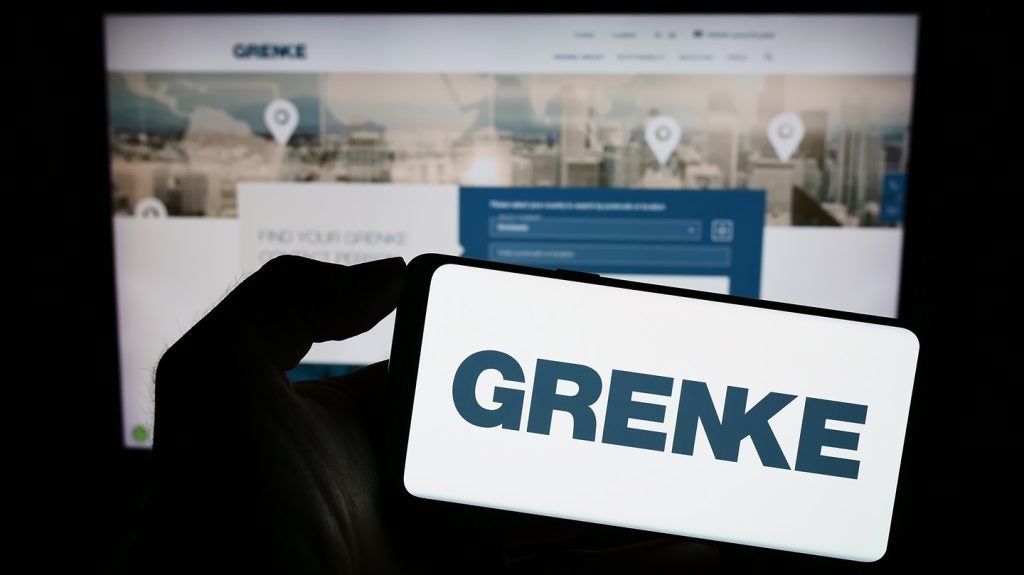
2010 seems to be a year of major campaign planning among
Britain’s smaller lessors, with the last two months seeing several
funders announce growth plans in these pages. This month, Fred
Crawley focuses on two overseas lenders with big ambitions for the
UK, and one that has decided to pull back.
Sad news first, with confirmation coming to Leasing
Life that Japanese lessor IBJ Leasing’s office in London has
stopped writing new business for the immediate future.
It is understood that the lender, which was
active in both motor finance and small ticket plant leasing, will
let its portfolio run down for a time after receiving instructions
from its parent, the Industrial Bank of Japan’s leasing
division.
It has been indicated that the decision may be
reviewed in the future.
How well do you really know your competitors?
Access the most comprehensive Company Profiles on the market, powered by GlobalData. Save hours of research. Gain competitive edge.

Thank you!
Your download email will arrive shortly
Not ready to buy yet? Download a free sample
We are confident about the unique quality of our Company Profiles. However, we want you to make the most beneficial decision for your business, so we offer a free sample that you can download by submitting the below form
By GlobalDataAll the London staff will remain at the
business, but it is as yet unknown whether the company’s portfolio
of small-ticket wheeled assets is up for sale.
‘Good, solid funder’
IBJ Leasing UK was launched as a greenfield
operation in the late 1980s, and underwent promising initial growth
until slowing down in the early part of the next decade.
Its most recent period of activity began with
the appointment of sales director Martin Nixon soon after 2000, who
helped grow the business into a flourishing, largely broker-led
funder.
IBJ was particularly known for lending no more
than £50,000 (€59,000) in any one deal. At present, IBJ employs 10
staff, of whom half are Japanese.
One broker familiar with the company expressed
surprise at the news.
He said: “IBJ was a good, solid funder, with
customers that paid them back and a focus on the right assets. Why
anyone would walk away from a business like that is a mystery to
me.”
Another broker called IBJ “an extremely
competent underwriter”.
As well as providing HP and leasing to UK
businesses, it has also done a steady stream of deals for Japanese
businesses, some of which involving cross-border transactions.
IBJ Leasing opened a subsidiary in the booming
Chinese market in 2009, growth of which is understood to be a major
priority for the business, and a possible reason for the
constriction of funding to the UK.
The company also holds a stake in a Thai
leasing company, as well as several fully- and partly-owned
subsidiary businesses within Japan.
At the same time as IBJ is withdrawing from
the market, another overseas player with roots closer to the UK
mainland is pushing for explosive growth.
Having performed excellently in the sheltered
asset finance market of the Isle of Man, local funder Conister Bank
has set its sights on moving into the general UK leasing market,
where it sees an awful lot of room to expand.
Conister began as Conister Trust in 1935,
providing a means for Manx residents to buy equipment and vehicles
in an environment with no other credit sources. In this respect, it
has been providing a form of asset finance more than three quarters
of a century.
The lion’s share
As a retail bank, it has a huge hold over the
Isle’s population of 80,000, which only grew during the recession
as Manx families lost confidence in mainland banks.
As a result of its deposit taking activities,
says head of sales Simon Ripton, it has become capital rich,
providing a lot of fuel to grow the lending side of the bank, which
focuses on asset finance business.
The bank has already taken the lion’s share of
Manx motor finance business from competitors such as Lombard and
Black Horse, however, and has grown to meet virtually all the asset
finance needs of the Isle’s population.
When Conister rebranded as Conister Bank in
2009, it positioned itself to sell to a wider audience, and began
to lend into the UK via a network of brokers.
At first, this was orchestrated through a
small office in Liverpool and a representative in Peterborough,
although now a third broker manager has been taken to cast a wider
net in the UK, with another hire planned in the third quarter of
this year.
In addition, a further business development
manager will be inducted into the bank’s 50-strong Manx head
office. According to Ripton, these new staff will be tasked with
growing Conister’s balance sheet “very quickly”.
Furthermore, 2010 will see the bank install a
brand new IT system to underpin asset finance lending, but this
will not include an automated credit scoring element.
 200-300% increase
200-300% increase
Underwriting at Conister is in-depth and
highly personal, sharing characteristics with the committee
strategy adopted by many other small and flexible funders on the
market. It is looking for brokers with good reputation, several
years of trading under their belt, and enjoying regular repeat
business from established customers.
Assets targeted will be commercial vehicles
and trailers, wheeled plant, and higher value passenger cars,
largely from prestige marques such as Mercedes and Ferrari.
Currently, Conister’s balance sheet is
relatively small at £50m, but Ripton expects this to increase
between 200% and 300% over the next 2-3 years. After that, he
believes the bank will need to source funds beyond its deposit
taking activities, which currently provide all capital for
lending.
Of course, these predictions assume organic
growth, whereas Conister’s owner, the Manx Financial Group, is
quite keen for the bank to grow through acquisition. Portfolios
between £1m and £10m are of great interest, it is understood,
including those built up by brokers. As is so often the case in
this column – watch this space.
Elsewhere in the market, another foreign
player has turned out to have an appetite larger than it first
expected, in the form of Canadian import D&D Leasing.
D&D opened its doors in January 2009 and
began writing business that April, looking for “the bottom slice of
a vast market”, explained sales director Brian Jerome.
The plan was simple – broker-led subprime
lending to SMEs, new starts and companies with small balance
sheets, backed up with appropriate risk pricing and focused
committee underwriting.
When managing director Bill Dost first planned
the UK business, however, the bank lessors were still competing for
cheap rates, and had not begun to tighten their lending criteria to
current standards.
Based on the credit profile of those
businesses being refused from the other lenders, D&D was
expecting to convert maybe two in every ten proposals from this
market into actual advances.
In actual fact, industry underwriting
thresholds rose across the board just before D&D’s debut,
forcing many customers with relatively strong credit ratings to
seek asset finance further from the “prime” end of the market.
As a result, D&D found itself converting
between 60% and 70% of proposals, and filled its books much faster
than anticipated – a situation that Jerome said “really put funding
under pressure”.
Nevertheless, the lender funded everything it
had committed to, and was quick to bring in further liquidity from
its sister business in Canada. Now, after a rollercoaster of a
first year in business, D&D has written 250% of what it had
originally budgeted for.
Now D&D’s team of six is looking into
smaller block discounting facilities to boost its deal volume, as
well as drawing down further lines from Canada. In addition,
D&D is seeking completion of a deal that will give it access to
a “significant” extra source of funds, expected in the second half
of the year.
Another funding boost could come from unused
risk provisions – due to client default rates being far lower than
expected, D&D has not had to make much use of the hefty loss
provisions it set aside in an escrow account, opening the
possibility that this capital could be put back into the business
in future.
It is also looking into private equity
funding, both in the UK and in Canada, where Jerome says that
potential investors are “less shy” than in London.
Still, while the lender struggles to meet
demand with supply, it has had to reduce its general maximum lend
per deal to £15,000, down from an initial £25,000.
Jerome said that the shift down into the
smallest of ticket sizes allowed it to pass business around a
greater number of brokers. It currently works with a panel of about
40.
Positive resolution
And while the front of the business continues
to be so busy, results from the back office are encouraging
too.
Out of a portfolio of about 130 customers,
there have been payment issues with only three, with a positive
resolution expected in each case.
However, D&D realises that things are
going to get more difficult as the market’s larger players begin to
ease up on underwriting and begin to service the “near-prime”
region of the market, leaving D&D with the customer credit
quality it had originally planned to expect.
As such, it will push for growth while it has
access to such a vast range of good deals, intending to build its
portfolio size by 100% over 2010, and then consider a similar
approach to the next two years. At the same time, it will try to
reduce its conversion rate to about 40%.
Within two years, managing director Dost plans
to open a further business in Poland, and a further operation in
India. What’s more, this campaign of expansion does not include any
plans for acquisitive growth – the business will be built up deal
by deal.







